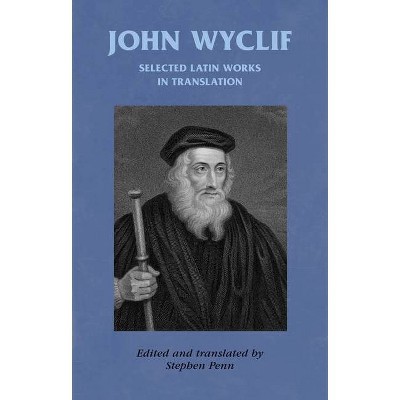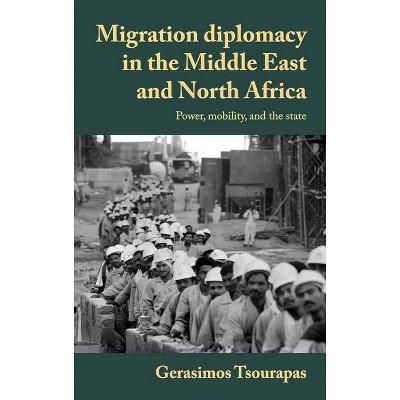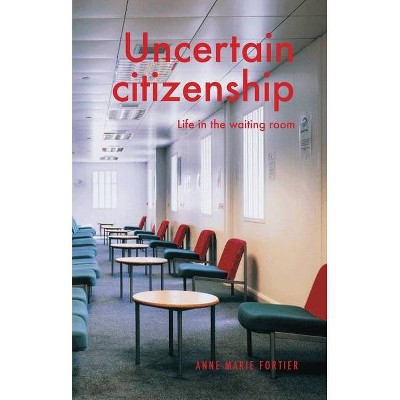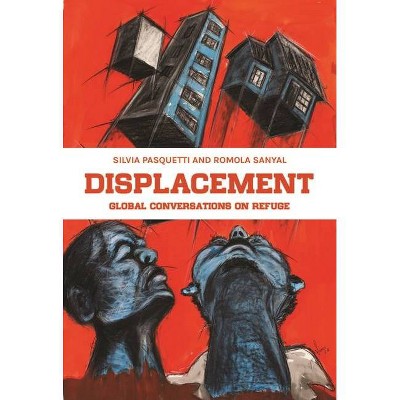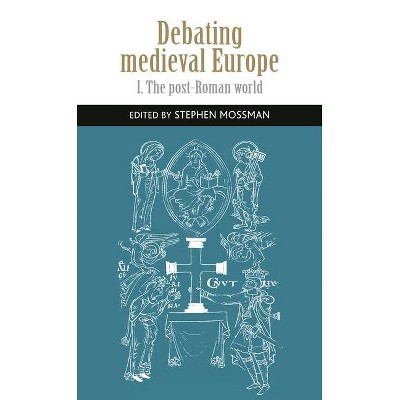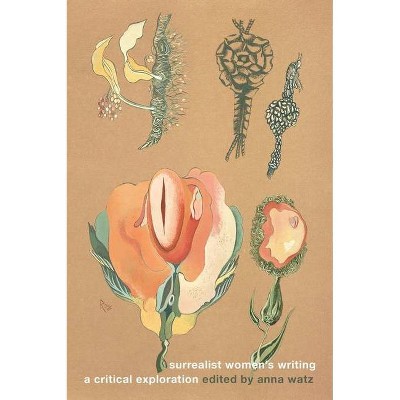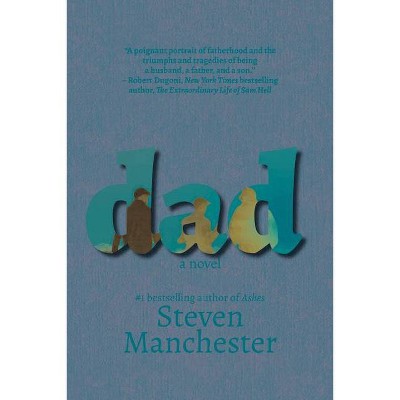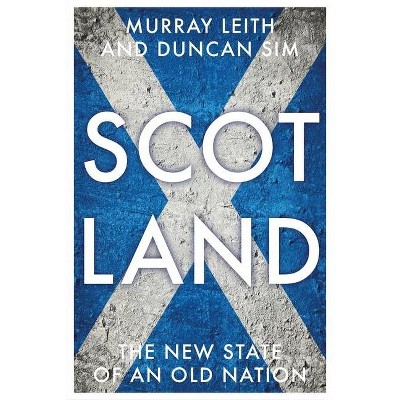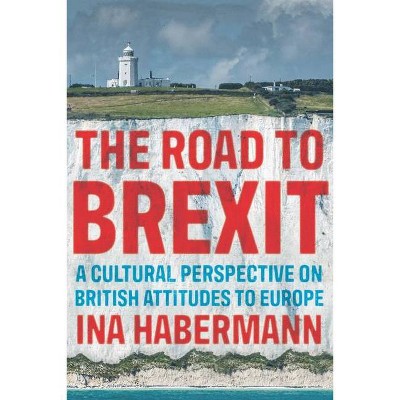Frontier Narratives - (Manchester University Press) by Steven Hutchinson (Hardcover)
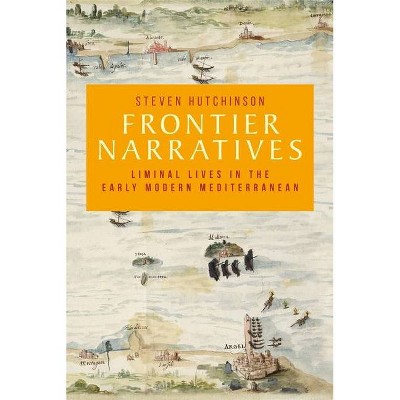
Similar Products
Products of same category from the store
AllProduct info
<p/><br></br><p><b> About the Book </b></p></br></br>This book uses a wide range of sources, factual and fictive, in many languages to examine how slaves and 'renegades' developed a frontier consciousness that took into account how the 'others' thought and acted, and how Muslims, Christians and Jews developed mutual understanding despite the hostile conditions of the early modern Mediterranean.<p/><br></br><p><b> Book Synopsis </b></p></br></br><p>This highly original study explores how Muslims, Christians and Jews interacted in the frontier zones of the early modern Mediterranean (primarily 1530-1670) and how they developed a frontier consciousness that took into account the thoughts and actions of their interlocutors. Sources used run the gamut of genres, from inquisitional records and different sorts of treatises to plays, novels and (auto)biographies, in numerous languages.<br /> <br /> The Muslim-Christian divide in the Mediterranean is interesting for many reasons. It produced an unusual kind of slavery, fostered a surge in conversion to Islam, offered an ideal setting for Catholic martyrdom in its rivalry with Protestantism and provided a haven of sorts for Spanish Muslims (Moriscos), as well as Jews. The book argues that identities and alterities were multiple and versatile, that there was no war between Christianity and Islam during the early modern period, that 'popular religion' prevailed over theological principles, that women experienced slavery and religious conversion differently from men, that commerce prevailed over ideology and dogma and that 'positive' human relations among people of different categories were not only possible but inevitable, despite prevailing hostile conditions. <br /> <br /> In the spirit of Braudel, who asserts that 'the Mediterranean speaks with many voices; it is a sum of individual histories, ' <em>Frontier narratives</em> gives voice to the people of the early modern Mediterranean in a way that no other study has before, casting all of the region's major historical themes in a new light.</p><p/><br></br><p><b> From the Back Cover </b></p></br></br>This highly original study explores how Muslims, Christians and Jews interacted in the frontier zones of the early modern Mediterranean (primarily 1530-1670) and how they developed a frontier consciousness that took into account the thoughts and actions of their interlocutors. Sources used run the gamut of genres, from inquisitional records and different sorts of treatises to plays, novels and (auto)biographies, in numerous languages. The Muslim-Christian divide in the Mediterranean is interesting for many reasons. It produced an unusual kind of slavery, fostered a surge in conversion to Islam, offered an ideal setting for Catholic martyrdom in its rivalry with Protestantism and provided a haven of sorts for Spanish Muslims (Moriscos), as well as Jews. The book argues that identities and alterities were multiple and versatile, that there was no war between Christianity and Islam during the early modern period, that 'popular religion' prevailed over theological principles, that women experienced slavery and religious conversion differently from men, that commerce prevailed over ideology and dogma and that 'positive' human relations among people of different categories were not only possible but inevitable, despite prevailing hostile conditions. In the spirit of Braudel, who asserts that 'the Mediterranean speaks with many voices; it is a sum of individual histories, ' <i>Frontier narratives</i> gives voice to the people of the early modern Mediterranean in a way that no other study has before, casting all of the region's major historical themes in a new light.<p/><br></br><p><b> Review Quotes </b></p></br></br><br>'In this beautiful complement to Braudel's work on the Mediterranean, Hutchinson maps, in depth, the cultural tapestry woven through the multiplex interaction between Christian and Muslim political powers. Readers' eyes will become increasingly open regarding the thorny complexities of the entire situation. In this interdisciplinary, well written and timely work, he shows the cruelty exercised by both sides of the conflict, and in great abundance.' James Iffland, Boston University 'Steven Hutchinson's <i>Writing the Early Modern Mediterranean</i> is a game-changer. Hutchinson examines the shifting modalities of human identities and relationships in the Early Modern Mediterranean through the voices of those who actually experienced the Mediterranean frontier zone, locales of sustained interaction among followers of the three major Abrahamic religions. Meticulously researched and skillfully written, this book offers a more nuanced and complex view of the Mediterranean frontier that will alter or change altogether the standard view or "take" on life in that frontier zone of the Early Modern world.' Marsha Collins, University of North Carolina at Chapel Hill 'Hutchinson (Spanish, Univ. of Wisconsin, Madison) has produced a small book packed with stories of the exchange of people across the Mediterranean's religious frontiers in the early modern centuries. The writers of these fictional and factual accounts, mostly European, range from obscure to famous. The best known is Miguel de Cervantes, whose years as a captive in Algiers inspired his plays, novels, and short stories. Hutchinson argues that the fictions generally conform to what is known, and he uses them to embellish the book's four main chapters. He discusses captives first, as they made up the greatest numbers and were victims of any number of confrontations ranging from small kidnapping raids to piratical fleets' actions and episodes of war. Captives awaited ransom and repatriation, which could come quickly in battlefield exchanges or more slowly for individuals and smaller groups. Some of those forgotten ended up as slaves and converted. Of those, some married well and found success in their new religion, while others held important administrative or military positions, some becoming the scourge of their former coreligionists. Despite all the hostility, cordial relations could still cross religious lines.' <i>--W. D. Phillips, emeritus, University of Minnesota</i> Summing Up: Recommended. Advanced undergraduates through faculty.<br><p/><br></br><p><b> About the Author </b></p></br></br>Steven Hutchinson is Professor of Spanish at the University of Wisconsin-Madison
Price History
Cheapest price in the interval: 108.99 on November 8, 2021
Most expensive price in the interval: 120.99 on October 22, 2021
Price Archive shows prices from various stores, lets you see history and find the cheapest. There is no actual sale on the website. For all support, inquiry and suggestion messages communication@pricearchive.us
